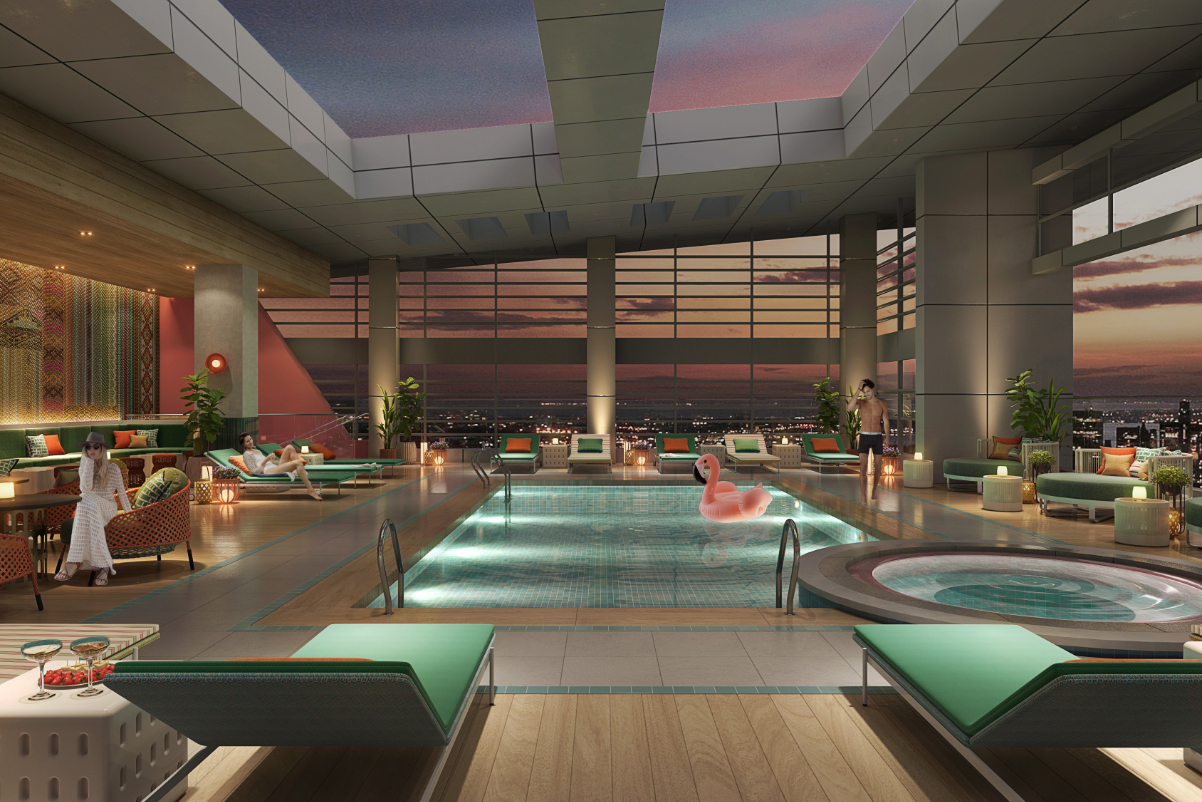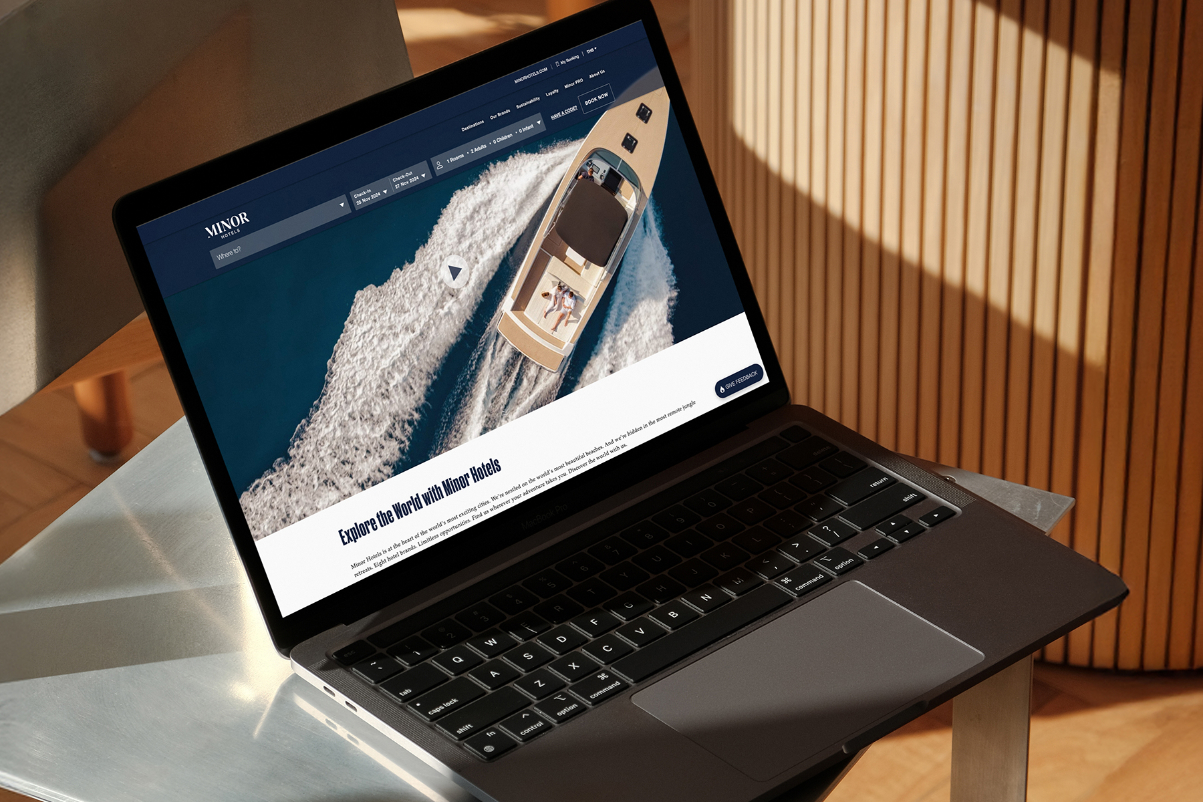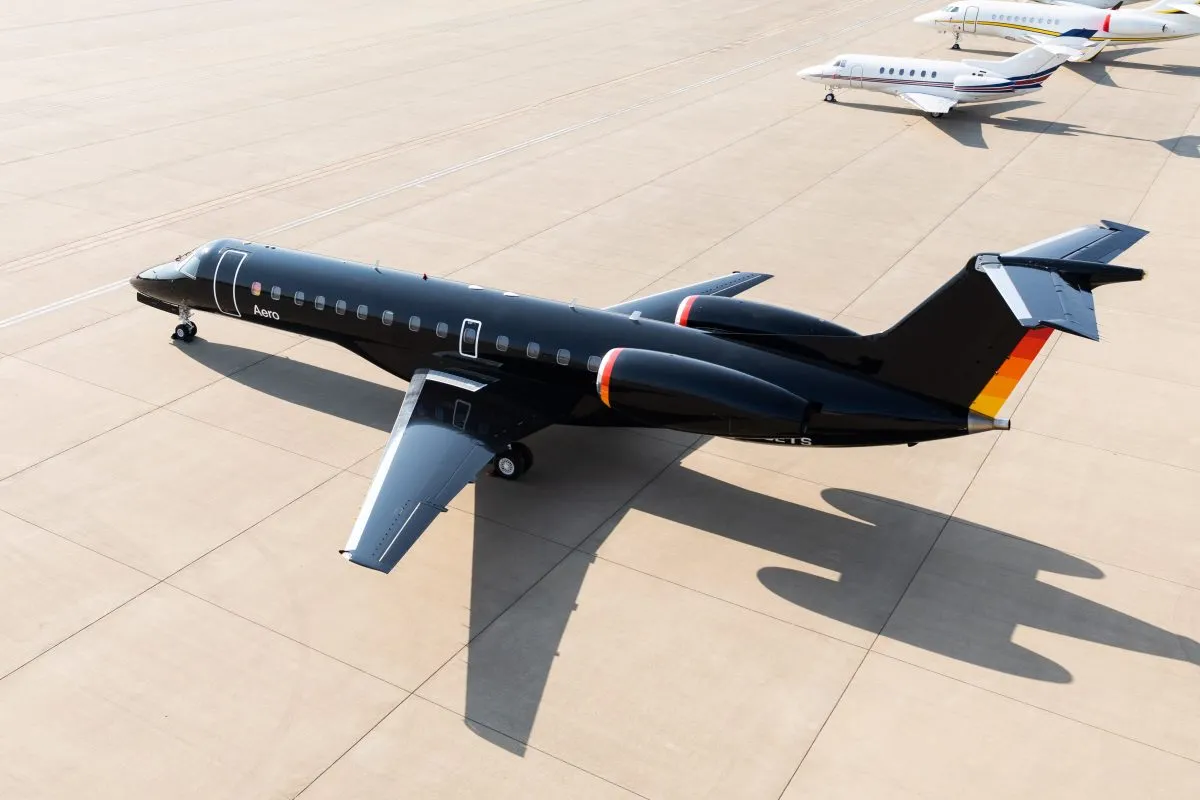Why Accor Is Repositioning Pullman to Embrace Blended Travel
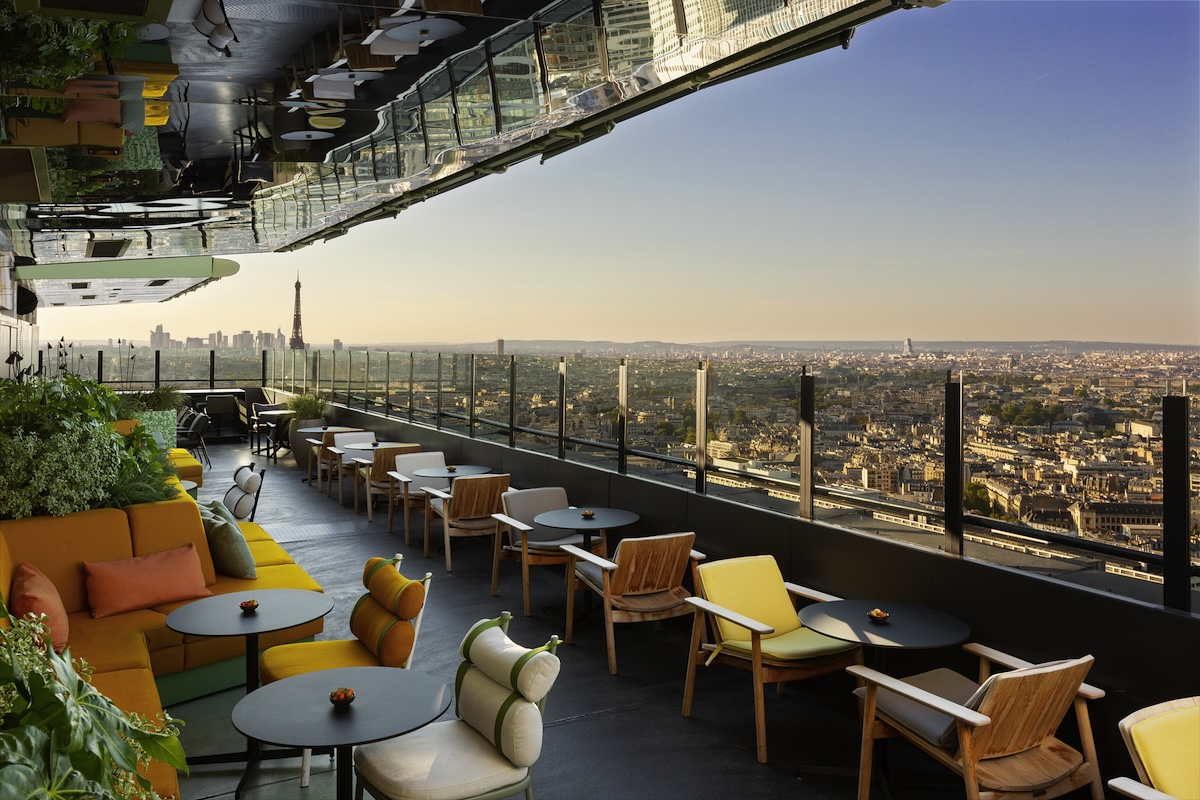
Skift Take
This sponsored content was created in collaboration with a Skift partner.
Blended travel, which merges business and leisure trips, has grown significantly since the pandemic. Skift Research reports a 72 percent year-over-year increase in blended travel bookings. Pointing to continued momentum, the World Economic Forum predicts remote digital jobs will grow by around 25 percent, with 92 million people working from anywhere by 2030. In response, many hotels are upgrading their facilities to accommodate both professional and recreational activities.
Accor is capitalizing on the blended travel movement by repositioning its Pullman Hotels & Resorts brand around the idea of “softer productivity.” In other words, they aim to create an environment where guests can be productive in a more relaxed and comfortable setting that enhances well-being and feels different from traditional, more rigid business settings.
SkiftX interviewed Jean-Jacques Morin, group deputy CEO and premium, midscale, and economy division CEO, and Karelle Lamouche, chief commercial officer, premium, midscale, and economy division at Accor, to discuss the growth of the premium category and how Pullman’s new strategy builds on its pioneering legacy and highlights its evolving direction.
SkiftX: Can you detail the strategic importance of the premium category for Accor in the current travel market?
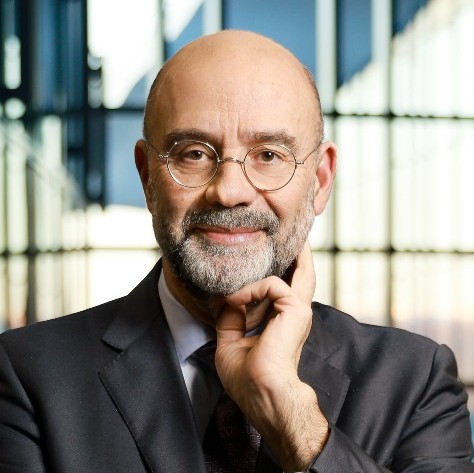
at Accor
Jean-Jacques Morin: Accor leads the midscale and economy segments in all global markets except the U.S. and China. We aim to achieve similar dominance in the premium category, which includes Pullman, Mövenpick, and Swissôtel. As announced at our Capital Market Day last year, we tripled our premium brand signings in 2023 compared to 2019. This momentum has continued into 2024, driven by growing global demand for premium hotels, especially in the Middle East, Africa, India, and Latin America.
Our effort to advance our premium brands is making a significant impact. Pullman has 155 hotels open across 42 countries, and 65 more are in the pipeline. Swissôtel is set to more than double, with around 35 existing hotels and 40 in development. Mövenpick, with over 120 hotels, has a substantial pipeline of 80 additional hotels underway.
SkiftX: Why has Pullman become such a key priority?
Morin: Pullman, our flagship premium brand, has a heritage spanning over 150 years and appeals to cultured, optimistic travelers with its pioneering spirit. Over the past five years, we've opened an average of eight Pullman hotels annually. Pullman's growth strategy includes over 30 upcoming destinations in China and five more in India and Indonesia. With rapidly growing "traveling class" populations, these markets offer significant expansion opportunities.
Recent flagship openings include Pullman Budapest, Pullman Singapore Hill Street, Pullman Hotel Nairobi Upper Hill in Kenya, and Pullman Cape Town City Centre, marking the brand's debut in South Africa. Upcoming openings this year feature Pullman Zagreb in Croatia and Pullman Kolasin Breza in Montenegro.
SkiftX: Pullman is one of the world’s most storied hospitality brands. What does that legacy say about the brand today and where it's going?
Morin: The Pullman brand originated from 19th-century innovator George Pullman, who revolutionized hospitality with his groundbreaking work in hotels and trains. When Accor relaunched the brand in 2007, we aimed to capture Pullman's pioneering spirit, creating hotels that serve as dynamic hubs for professionals, blending business with social experiences, dynamic dining, and top-tier fitness. The brand is rapidly expanding internationally, focusing on elevated guest experiences that merge business, culture, and community with eco-certified design, smart technology, and a planet-friendly mindset while maintaining a narrative of progress and glamor.
SkiftX: What do blended travel and “softer productivity” mean to the Pullman brand?

and Economy Division CEO at Accor
Karelle Lamouche: Pre-pandemic, "bleisure" travel typically meant extending a business trip into the weekend. Now, blended travel is more about mindset, integration, and purpose.
Pullman has always embraced a modern and innovative positioning. While the brand initially catered to the "work hard, play hard" mindset, today's travelers prioritize a more integrated approach. Modern travelers blend work and leisure throughout their trips rather than separating them strictly by days of the week, so our focus is on enhancing the in-hotel experience — including operations, food and drink, and entertainment — to serve both segments seamlessly.
For example, guests might use meeting rooms during the day and enjoy the hotel's entertainment facilities in the evening. We are partnering with C2 Events to create fully immersive meetings and events and establish Pullman as a leader in this space. Additionally, we have launched Pullman Happenings, experiential events including thought-provoking and cultural talks and entertainment, positioning the brand firmly in innovation, creativity, and social engagement. We're revamping our service culture and customer touchpoints to deliver these unique experiences consistently.
SkiftX: Can you share examples of how different Pullman properties uniquely express this new brand vision?
Lamouche: In France, Pullman Lyon and Pullman Paris Montparnasse, located near major train stations, feature reimagined social spaces and contemporary restaurants that appeal to both locals and guests. Pullman Paris Montparnasse hosts the first Umami Burger restaurant in France and the Sky Bar, 377 feet above Paris, while Pullman Lyon offers a French-Argentinian fusion restaurant, Pampa. Both hotels provide modular event spaces for various functions and gatherings. Pullman Paris Montparnasse's C2 Immersive Floor, with an 8,600-square-foot green terrace, enables transformative and creative events.
Pullman Singapore Hill Street, which opened last October, takes inspiration from Pullman's legacy and vision for experiential travel, complete with modern-day Pullman Porters and guest-facing design touches that include intelligent technology. True to Pullman's history, the hotel has established exciting partnerships with some of Singapore’s favorite local brands, elevating the culinary experience through collaborations with local coffee culture pioneers Sarnies, Singapore’s best sourdough by Starter Lab Bakery, and deli food from Madison’s. The hotel also includes an authentic tea lounge, a Japanese Izakaya and cocktail bar, and a rooftop pool with a swim-up bar.
In addition, Pullman is innovating its guestrooms to cater to blended travelers. Their flexible designs can adapt to various daily needs, seamlessly transitioning from workspaces to lounges and sleeping areas. For example, the Transforming Room at Pullman Singapore Orchid, a one-of-a-kind innovative concept room, can quickly transform from a bedroom to a meeting room, fitness studio, lounge area, or private dining room. Though guests can’t experience this experimental concept room, it has become the blueprint for adaptive space design in our Pullman hotels as we innovate to cater to the dynamic needs of modern travelers.
SkiftX: What significant developments or initiatives can we expect from Pullman over the next five years?
Lamouche: It's essential that the brand evolves with new consumer expectations and adapts accordingly. We are flexing to serve our guests’ evolving needs through people-centric space and service design. Over the next five years, we aim to double our network and continue pioneering across three key pillars: meetings, events, and social gatherings; experience-focused food and drink; and sustainability, consciously innovating and designing for a more positive and considered experience.
Overall, we plan to continue iterating on our goal to create a lifestyle destination that serves the needs of locals, professionals, and travelers around the clock in a unique way that’s only possible at Pullman because of our pioneering spirit. When you enter a Pullman hotel, you immediately feel the brand's essence, the vibrant atmosphere, and the creativity in service and attitude.
To learn more about Pullman Hotels & Resorts, click here.
This content was created collaboratively by Accor and Skift’s branded content studio, SkiftX.


